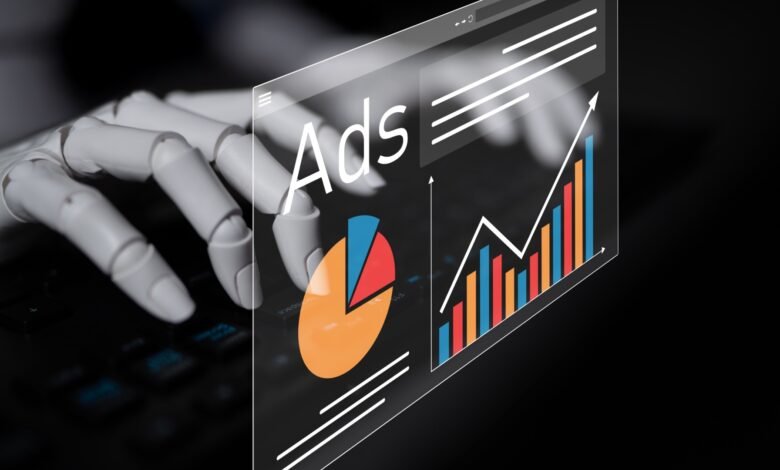Boost Your PPC IQ with AI

▼ Summary
– AI has become the dominant topic in the PPC industry, with automation shaping nearly every aspect of paid media through tools like Google’s Performance Max and Meta’s Advantage+.
– Human guidance is essential for AI systems, requiring clear inputs, constraints, and expert quality assurance to produce accurate results, as AI cannot be blindly trusted for high-accuracy needs.
– Effective prompting involves being specific about topic, tone, length, and format, and iterating with feedback to refine outputs, while always verifying results to avoid hallucinations.
– Privacy must be prioritized by never sharing personally identifiable information in AI tools and using enterprise plans with data controls to protect sensitive data.
– AI delivers value in content creation, data analysis, strategy ideation, and research, with iterative prompting for competitor and audience analysis providing actionable insights for marketing strategies.
Artificial intelligence is fundamentally reshaping the world of pay-per-click advertising, moving from an emerging trend to a central component of campaign management. The conversation has shifted from whether AI will impact PPC to how professionals can best leverage these powerful tools while maintaining strategic oversight. Platforms like Google’s Performance Max and Meta’s Advantage+ increasingly rely on automated systems, with industry leaders predicting near-total AI management of advertising campaigns within the coming years. This evolution requires marketers to focus on providing these systems with precise inputs, appropriate constraints, and meaningful context to achieve optimal results.
Understanding both the capabilities and limitations of AI tools remains crucial for effective implementation. While these systems offer tremendous potential for efficiency gains, they cannot reliably produce fully accurate, ready-to-use outputs without significant human guidance. If your work demands at least 80% accuracy from the start, you’ll need to either avoid AI for those specific tasks or allocate substantial time for refining prompts and thoroughly verifying results. Even with excellent prompting techniques, AI typically provides directional guidance rather than polished final products. Another significant consideration is the inconsistent nature of AI responses, the same tool might deliver brilliant insights one day and completely miss the mark the next, despite supposedly learning from your interactions.
Crafting effective prompts represents perhaps the most critical skill for maximizing AI utility. Vague requests yield equally vague responses, while detailed specifications produce dramatically better outcomes. Instead of asking for “some ad copy,” specify exactly what you need: “Write three variations of LinkedIn ad copy (under 150 characters each) for a boutique performance marketing agency targeting growth-stage SaaS companies seeking efficient customer acquisition. Use a professional yet approachable tone, highlight ROI and transparency, and include a strong call-to-action for booking consultations.” This level of detail gives the AI clear parameters to work within. Remember that prompting is an iterative process, evaluate each response carefully and provide specific feedback to steer subsequent outputs closer to your requirements.
Privacy considerations demand serious attention when working with AI systems. Many users become surprisingly casual about data protection when using these tools, despite the fact that input data is typically collected and stored. Never share personally identifiable information, whether your own or others’, including names, email addresses, or other identifiers. Where possible, opt for enterprise-level plans that offer administrative controls, customizable data retention settings, and enhanced encryption. The old adage remains relevant: if you’re not paying for the product, you are likely the product being sold.
When implemented with proper safeguards, AI delivers substantial value across multiple PPC functions. Content creation represents one of the most immediate applications, with AI generating effective ad copy, website content, and supporting marketing materials. These tools excel at developing formulas and scripts for data manipulation and Google Ads automation, while their analytical capabilities help organize information and identify emerging trends. Strategic brainstorming benefits from AI’s ability to generate high-level concepts, and quality assurance processes improve when using AI to review presentations, copy, and other deliverables before stakeholder presentations.
Competitive and audience research particularly benefit from AI assistance. For analyzing competitors, try this approach: “Research the advertising strategies and audience targeting used by [competitor names] for their [specific product/service]. Identify 3-5 actionable lessons we can apply to better reach our target audience, including gaps or missed opportunities they haven’t capitalized on. Present insights in a clear, structured format with examples of ads, landing pages, or campaigns where possible.” For audience research: “Provide a detailed analysis of how [specific demographic] evaluates and purchases [product category]. Cover platforms and media habits across the customer journey, price sensitivity and purchase drivers, influential trust sources, channel-specific targeting tactics for major platforms, common challenges and friction points, and conclude with 3-5 specific marketing recommendations.” Expect to refine these prompts through multiple iterations, with two or three thoughtful follow-ups, you’ll accumulate substantial strategic intelligence.
Developing organizational AI fluency has become essential for maintaining competitive advantage. The landscape of available tools expands constantly, with countless companies introducing new capabilities regularly. Whether operating within an agency or corporate environment, designate team members responsible for researching emerging technologies, conducting cross-training sessions, and maintaining ongoing knowledge sharing as part of your operational rhythm. While human creativity and strategic thinking will always produce differentiated results, teams that fail to develop AI proficiency will find themselves competing with significant disadvantages. The future belongs to organizations that successfully integrate artificial intelligence with human expertise to create more effective, efficient advertising outcomes.
(Source: Search Engine Land)





